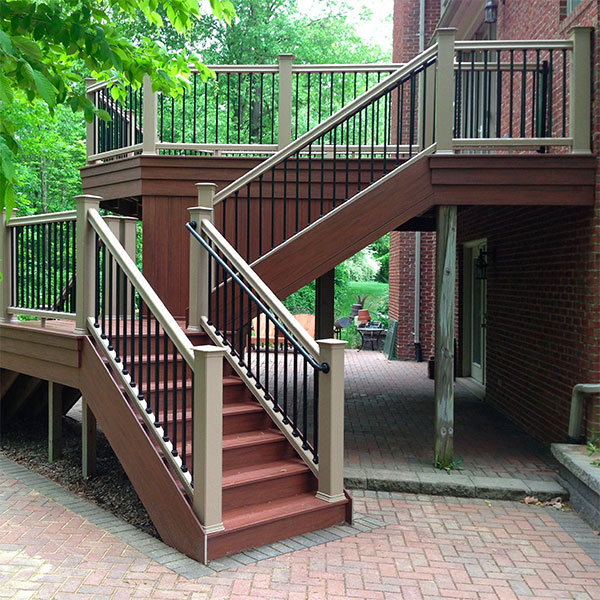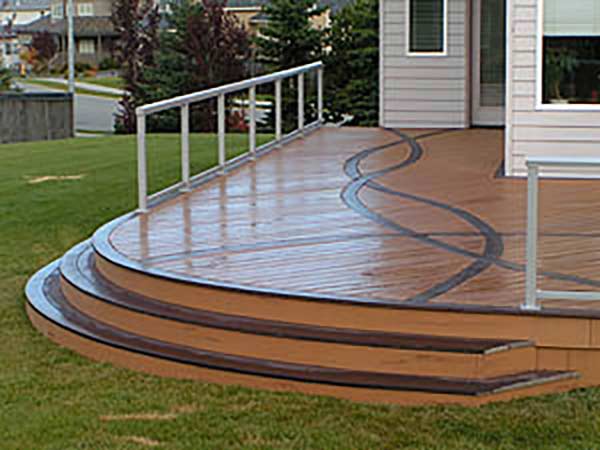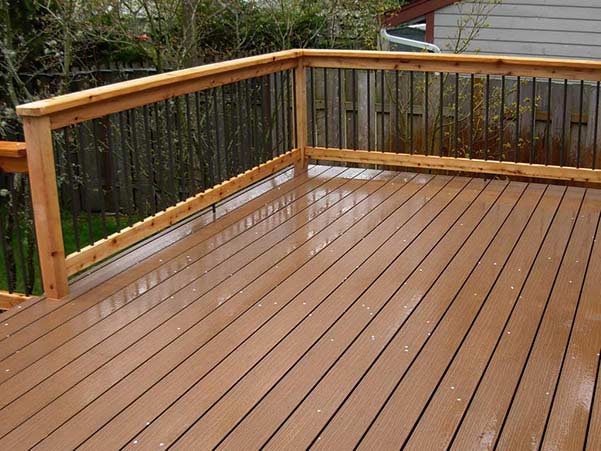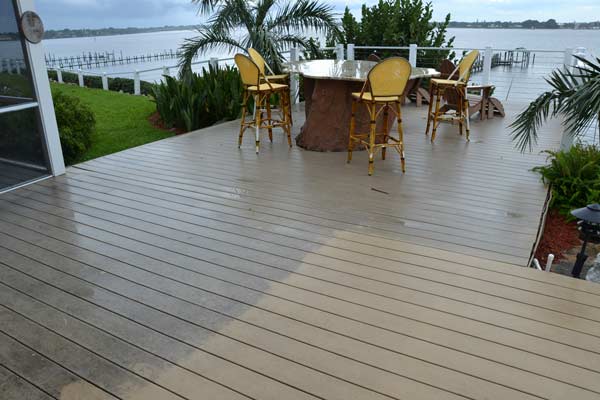Reduce Slip, Trip & Falls on Trex and Composite Wood Decks
Synthetic wood continues to grow in popularity, especially for use on backyard decks and other outdoor structures. Also known as composite lumber or synthetic decking, synthetic wood is typically made of wood shavings that are bound together by glue and pressure, much like pressed wood. These planks are then sheathed in plastic or a compound containing a combination of plastic, resin, and wood fiber. The quality of the sheathing often determines the amount of moisture the synthetic wood board will absorb and thus how susceptible it might be to slip and fall hazards.

The rising popularity of synthetic wood can be attributed to it being:
- Weather-resistant
- Guarded against splintering or rotting
- Lighter than natural wood
- Low maintenance
- Available in a variety of colors
- Sometimes made in part with eco-friendly recyclables like bamboo
Of course, there are trade-offs when using synthetic wood for outdoor structures. The negatives include:
- Being more expensive per foot than natural wood
- Sometimes being made with caps that are slippery, especially when wet
- Looking “fake” and are not as attractive as natural wood, depending on the brand
- Prone to algae, mold or mildew, if the composite absorbs water
- Sometimes certain brands can bow over time
Below are a few major manufacturers of synthetic wood and the products they offer into the market.
Trex Synthetic Wood
Trex Company, Inc, founded in 1996 and headquartered in Winchester VA, created, refined, and perfected the category regarding composite decking, becoming the world’s largest manufacturer of wood-alternative decking products. Today Trex offers the industry’s widest array of high-performance composite products, available in more than 29 countries around the world.

Trex manufactures composite decking to create a low-maintenance, high-performance backyard retreat that can offer you a serene outdoor experience. Some of the manufactured products include high-performance composite decking, PVC (vinyl) decking, and wood/plastic early-generation decking.
While many homeowners may invest in Trex synthetic decking based on the sleek design and economical price tag, Trex decking can still present many slip and fall hazards. Deterioration over time and weather conditions like snow, sleet, or rain can create unsafe conditions on your Trex decking. To learn more about making your Trex decking free of slip and fall hazards, we have written a comprehensive article on how to make your Trex decking less slippery.
TimberTech Synthetic Wood
TimberTech®, founded in 1996 and headquartered in Wilmington OH, is a leading manufacturer. They are involved in the research, development, and marketing of long-lasting composite, wood-plastic, and PVC decking, railing, and fencing solutions.
With TimberTech you can build a dream wood-composite deck with confidence. Available products include wood-plastic composite, capped composite, and PVC composite, all available in earth or other natural tones.

TimberTech maintains its color and elegance for years without the need of annual painting or staining. And it resists mildew, warping and insects, removing the need to replace rotting, uneven or termite-damaged boards. TimberTech also offers a 25-year warranty coverage, and that warranty can be transferred to a second homeowner.
The above information is great, especially the transferrable warranty, but what about the dangers? Most people don’t realize, in terms of safety, that composite decks are actually more dangerous than lumber found at a big box store due to the manufacturing process and materials. Yes, composite decking is easier to clean and lasts for many years. But it’s also susceptible to mold, mildew, and regular wear and tear.
MacLumber Synthetic Wood
MacLumber, headquartered in Bamberg SC, is a manufacturer and supplier of plastic lumber used for decking and other outdoor areas.
Unlike Trex and TimberTech, MacLumber is not a well-known brand, however, they do maintain synthetic lumber that is among the best manufactured. Their best-known product is called NyloDeck; not made of wood nor PVC, but instead of recycled carpet fiber.

Some benefits of this product include: strong, lightweight, easy-to-use; impervious to mold, mildew and termites; no rot or swelling; UV protected; strength and rigidity enable joist spans up to 24″ O.C.; available in lengths up to 24′; and best expansion and contraction rating of all composites.
But how does that help someone who wants to install this product outdoors? We all know carpet can stain no matter what liquid is tossed on it. Then you have the problem of dealing with a cold or frozen carpet in the winter.
